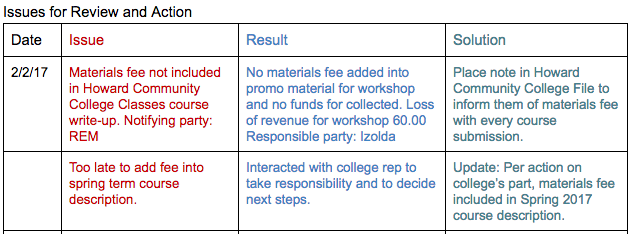The Relationships of Doing Business
The longer I work the more I realize that one of the most important aspects of business are the relationships we build with our colleagues, our competition, and most especially our customers.
I also realize that even though I own my own company and hire contractors to work for and with me, I am not the important person in any of these relationships. My job ultimately becomes to make it easier for everyone else to do their jobs so we can all thrive.
That seems to be working well in all of my endeavors with the people who work with me. I am proud of what we are building. And yet, I need to constantly manage my own expectations of what people see and hear when I communicate with them and what they do upon getting the information. For example, I might believe I have communicated my instructions clearly and effectively but because the recipient of the communication learns and absorbs information differently than how I imparted it, things don’t get done, vital deadlines get missed, and then we have to clean up messes. The answer is likely to provide the information in multiple ways to ensure that you get your point across, but sometimes, no matter how hard you try, your point is missed. So, cleaning up messes is a part of the process. And if you are in charge, and the buck stops with you, then those messes are yours to clean up.
Here is an example.
I work for a local college as an adjunct. I teach people how to build their confidence and free their voices. As part of my workshops, I provide practice materials so people can continue to learn after the workshop is over. Up until this term, I have added a 5.00 materials fee per CD, and I have stated the materials fee explicitly.
This last semester, I only put in that the CDs would be there. I did not specifically state there would need to be an additional materials fee. None got charged. I got dinged for the money. Whose fault was it? Mine.
Could they have remembered that there is a materials fee every time? Yes. Could they have added it into the promo materials for the workshop? Yes. Was it their responsibility to do so? No. It was mine. I dropped the ball. I eat the dime. And I know from now on that I will state it explicitly every time. It is a financial lesson but luckily not a costly one this time.
However, its value to me can’t be overstated. I have learned a great deal from the interchange with the college. I have also learned that I must be explicit in all financial interactions. From now on, I will be. And what’s more? Any frustration I feel about is not theirs to bear. It’s neither their fault nor their problem and so they won’t hear about it. And that is that.
That brings me to how I will clean up this mess and what I will do differently moving forward. What will I learn from it? How will I make it more efficient? And most importantly, what will I do to ensure this doesn’t happen again?
I create grids to remind myself of what happened and what my solutions to it will be. Here is a simple one.

These are google docs and they allow me to maintain regular oversight of any issues and their resolutions. They also help me to remember that I am responsible for addressing any issues. These grids can get pretty detailed but they give me an opportunity to see my action items laid out. And I maintain that once it’s written down, it is much easier to address because it simply no longer looms as large.
The concrete can be resolved. What we imagine needs resolution takes a lot more effort. And me? I prefer things to be smooth and easy. The more I prepare, the easier things go.
Next time, I will talk about ideas for handling our frustrations from these sorts of interactions. If we are going to put them where they belong, where do they go? How might we deal with them? What are some ways to do that?
Until then, cheers!